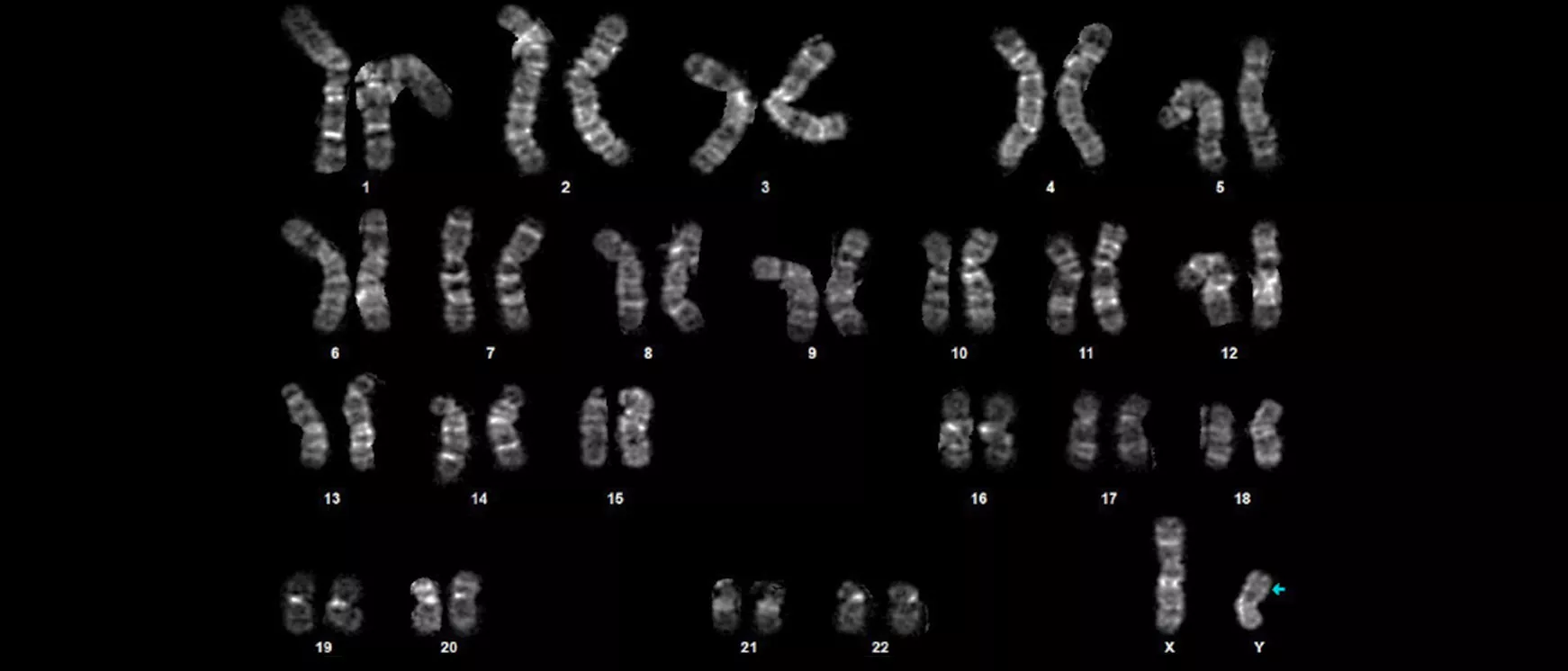About Chromosome Disorders
At the New York Center for Rare Diseases, you’ll find state-of-the-art, comprehensive, research-based care for chromosome disorders due to all types of chromosomal abnormalities. Chromosomes are structures within our body’s cells that contain protein and DNA, which carry the genetic information (genes) that can be passed from parents to offspring. Chromosomal abnormalities can alter the genetic information our cells need for growth, development and function.
Categories of Chromosomal Abnormalities
There are two main categories of chromosomal abnormalities that can affect single or multiple autosomes (the first 22 pairs of chromosomes), sex chromosomes (the 23rd pair of chromosomes) or both:
- Structural anomalies include chromosomal deletions, duplications and translocations in which part of an individual chromosome is absent, added, switched or turned upside down.
- Numerical anomalies include abnormalities in chromosome numbers, when whole chromosomes are either absent or added to one or more of the normal pairs (aneuploidy), or when cells contain more than two complete sets of homologous chromosomes (polyploidy).
Living with Chromosomal Abnormalities
Chromosomal abnormalities can cause a wide variety of rare genetic disorders, some of which can have serious health risks if left untreated and can result in miscarriage or problems in growth or development. For example, an extra copy of chromosome 21 may cause Down syndrome, which can result in intellectual disability, while a missing piece of chromosome 22 may cause DiGeorge syndrome, which can lead to heart, thymus, parathyroid and craniofacial abnormalities.
Having a chromosomal abnormality does not necessarily imply poor quality of life. The prognosis of chromosome disorders depends on many factors and varies widely, even among individuals with the same condition. Some disorders may cause conditions so severe that they may be incompatible with life, while others may take a milder course with fewer health issues and may not present serious problems.
Advanced Screening, Diagnostics & Treatments
Our multidisciplinary team of world-renowned experts specializes in diagnosing and treating all types of rare chromosome disorders to optimize health and quality of life. We offer access to the latest and most advanced prenatal screening, imaging and other diagnostic testing to help identify certain chromosomal abnormalities that cause rare diseases in developing babies and newborns as early as possible so that they may benefit from prevention strategies, genetic counseling and early therapy and intervention.
We offer early, non-invasive prenatal screening tests, including carrier screening before and during pregnancy, quadruple screening, cell-free DNA analysis, early risk assessment and massively parallel sequencing for non-invasive prenatal DNA testing (NIPT). For prenatal diagnosis using minimally invasive techniques, we work as a unified team with our Department of Obstetrics & Gynecology and Women’s Health and specialize in performing chorionic villus sampling, amniocentesis and cordocentesis for the collection of circulating fetal cells, as well as sophisticated blastocyst biopsy for preimplantation embryo diagnostics. Our chromosomal analysis technologies include advanced cytogenetic testing, such as karyotyping, chromosomal microarray analysis, and fluorescence in situ hybridization (FISH).

Learn More About Chromosome Disorders
Receiving a diagnosis of a chromosomal disorder, or being at risk for or suspected of having one, can feel overwhelming, but learning more about the diagnosis can help you navigate treatment and care. Visit the links below to learn more about some of the different types of rare chromosome disorders, their causes, and associated symptoms as well as screening and treatment options. This list includes a selection of chromosomal disorders. Schedule a consultation with us for diagnosis and treatment options for these or any other rare conditions.
Abnormalities of Chromosome Numbers
Chromosomal Deletions
Chromosomal Duplications
Chromosomal Translocations
Montefiore Einstein Regional Center for 22q11.2 Deletion Syndrome
Williams Syndrome Clinic
Pediatric Medical Genetics Clinic
Image courtesy Positive Exposure in collaboration with the PRISMA Group.



